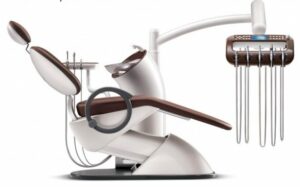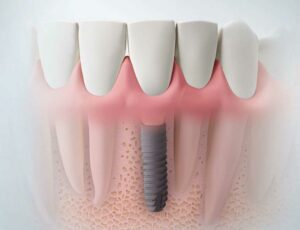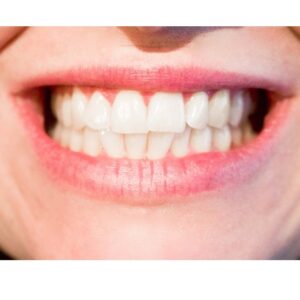Though dentures are a common solution for replacing large areas of missing teeth, some find that they are not the best solution. If your dentures are more of a bother than a benefit and you are looking for denture alternatives, consider dental implants.
You can switch from dentures to dental implants to get a permanent and durable solution that you’ll enjoy, without worrying about slipping and shifting.
The Problems With Dentures
Dentures are a prosthetic that replaces all of the top or bottom teeth, held in place with an adhesive. This adhesive is a temporary bond between the soft tissue and the bone. Because missing teeth leads to bone loss, the area where your dentures sit changes. This change means that the seal won’t be effective, and the dentures will be loose.
Whether you buy a stronger adhesive or reline your dentures, these are both short-term solutions that will have to be repeated. This is why dentures have a higher cost over the long term. However, implants have none of these issues and yet have other benefits that dentures cannot offer.
The Benefits of Dental Implants
Dental implants offer many advantages over dentures, such as:
- Stability: Because the teeth are fixed to a titanium base that’s drilled into the jawbone, they will be stable without slipping and sliding.
- Durability: With careful oral hygiene and a commitment to a healthy lifestyle, dental implants will last for decades or even a lifetime.
- Permanence: Dental implants are permanent, so you don’t need to take them out for bed or cleaning.
- Appearance: Dental implants look like the real thing and will blend well with your natural teeth.
- Comfort: Dental implants are comfortable on the gums and should cause no pain.
- Eating: You can eat the foods you like, including those that are hard or have seeds.
Transition Process From Dentures to Implants
The transition from loose dentures to implants has a few steps. Before you get dental implants, your dentist will assess your health to make sure you qualify as a candidate. If your jaw has lost considerable bone density, you may have to have a bone graft first. After four to six months, then you can receive your implants.
Dental implants are placed during a surgical procedure. The screw-like base is placed into the jawbone to act as the root. The implants will heal for two to six months, which is vital in encouraging the implant to adhere to the bone and form a strong foundation for the teeth. After healing, you’ll get your realistic-looking, custom-made crowns.
Once your mouth has healed, you can enjoy your implant teeth as a permanent and comfortable solution that allows you to eat what you want, improve your speech and have a beautiful smile.
Learn More About Hiossen® Implant
Switching from dentures to a Hiossen Implant is the best decision you can make for your oral health. Hiossen products are innovative and comfortable, so you can enjoy teeth that will last a long time and perform all the functions you expect. Learn more about our implants by contacting us today.




